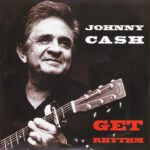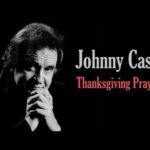Take This Job and Shove It – Johnny Paycheck
“Take This Job and Shove It” by Johnny Paycheck is one of country music’s most iconic working-class anthems. Released in 1977, the song captures the frustration and burnout of the everyday laborer who’s had enough of being undervalued and overworked. Written by David Allan Coe, it perfectly suited Paycheck’s rough-edged voice and outlaw image, making it his biggest hit and an anthem for anyone who’s ever dreamed of quitting a thankless job with a few choice words.
The lyrics tell the story of a man who has dedicated years of his life to a job that’s given him little in return. He’s tired, bitter, and angry—not just at the work, but at the way his personal life has fallen apart because of it. His woman has left him, and his sense of pride and purpose is gone. So when he declares “Take this job and shove it,” it’s more than just a punchline—it’s a declaration of personal rebellion against a system that’s chewed him up and spat him out.
Musically, the song leans into the classic honky-tonk sound with a driving rhythm and twangy guitars that perfectly match its blue-collar defiance. It became a staple of the “outlaw country” movement, which rejected the polished Nashville sound in favor of a grittier, more authentic tone. Paycheck’s delivery—equal parts anger, exhaustion, and satisfaction—made the song believable and deeply relatable.
Beyond its humor and attitude, “Take This Job and Shove It” resonated because it spoke to something real: the tension between survival and self-respect. It became more than just a country hit—it entered the American lexicon as a catchphrase for quitting in style. The song gave voice to the working class at a time when economic hardships and job dissatisfaction were widespread, and decades later, it still stands as a timeless tribute to the everyday worker’s breaking point.
Did you know Johnny Paycheck’s real name wasn’t actually “Paycheck?” He was born Donald Eugene Lytle in Greenfield, Ohio, in 1938.
He adopted the stage name Johnny Paycheck in the early 1960s, inspired partly by a real-life boxer named Johnny Paychek (spelled slightly differently). The name was catchy, memorable, and fit perfectly with his rough, working-man image—especially when he later became known for songs about the struggles and pride of the blue-collar life.
Before his solo fame, Paycheck spent years as a sideman and session musician, playing bass and singing backup for legends like George Jones, Ray Price, and Porter Wagoner. But once he took on the name Johnny Paycheck, his rebellious persona and hard-living attitude started to match the sound and message of his music. The name became so iconic that most people assumed it was his real one—which probably suited him just fine.








November 8, 2025 @ 10:19 am
That song has merit with today’s standards… LOVE IT!!!!